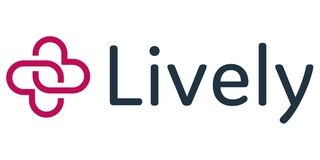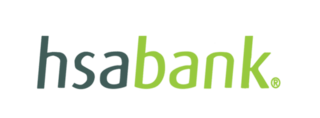Best Health Savings Account (HSA) Providers
Health savings accounts (HSAs) let you contribute pre-tax dollars to pay for qualifying medical expenses. Opening one could help you save money while paying for deductibles, copayments, coinsurance and other health care costs. But finding the right provider isn’t always easy.
We put together this guide to help you find the best health savings account for your needs. Read on to see our top picks and for a more detailed look at how to make your selection.
Our Top Picks for the Best Health Savings Account Providers
- Fidelity — Best Investment Options
- HealthEquity — Best for Employers
- Bank of America — Best for Families
- Lively — Best for Low Fees
- HSA Bank — Best for No Minimum Account Balance
Best Health Savings Account Reviews
- A wide array of investment options
- Portfolio management available
- No minimum opening deposits or account fees for most HSAs
- Commission-free online trading for U.S. stocks
- No minimum balance to invest funds, though certain mutual funds may have minimum investment requirements.
- Some investments have underlying fees
- Can take up to 10 days to receive funds after initiating a withdrawal from one type of account
Why we chose it: Fidelity lets you purchase a wide variety of assets with your HSA savings and keeps fees between low and non-existent, depending on how you invest.
Fidelity offers a self-directed HSA that you can invest in the company’s full range of equities, exchange-traded funds (ETFs) and mutual funds. It also has a managed portfolio option called Fidelity Go HSA for savers who don’t want to actively manage their funds.
Whichever account type you choose, you won’t have to worry about meeting any minimum opening deposit amount. There are no fees — even for the managed portfolio option — unless you have more than $25,000 in the account. If you do decide to invest yourself, you can buy and sell assets in the U.S. stock market without any commission fees.
One thing to keep in mind is that withdrawals from your Fidelity Go HSA may take as long as 10 days to reach your bank account. That may be frustrating if you have urgent medical expenses. The self-directed HSA generally delivers withdrawals within three days. The company says some investments may carry underlying fees but doesn’t specify which assets or how much.
- Can act as a single benefits solution for employers
- 24/7 member support services
- Offers custom integrations with retirement and payroll platforms
- Provides a variety of learning resources for your employees
- Charges a monthly fee
- Doesn't allow investing in individual company stocks
Why we chose it: HealthEquity helps employers fold HSAs into existing employee benefit programs with expansive integrations and broad support availability.
HealthEquity integrates with common payroll and retirement platforms to simplify benefits management for employers. The company also offers bundled pricing on different types of health savings accounts, which could allow you to give more options to your employees at a lower price point. You also get 24/7 customer support access and plenty of learning resources for employees.
One downside is that HealthEquity charges a monthly investment administration fee based on the average daily balance invested. This is capped at $10 per month but can be frustrating for employees with large amounts in their HSAs. Your employees also won’t be able to invest in individual company stocks if you choose this provider.
- 24/7 customer support
- Integrates with your existing Bank of America account
- Offers a mobile app for on-the-go management
- Automatically transfers your funds between cash and investments based on your priorities
- Charges a $2.50 monthly fee for accounts through an employer
- Doesn't allow investments in individual company stocks
Why we chose it: Bank of America helps families benefit from HSAs with simplified account management and integration with personal banking services.
Bank of America’s HSA integrates with personal banking services to simplify the health care saving process for families. An account offers convenient features like 24/7 customer support and a mobile app for on-the-go account management. Families can also set up their HSA account to automatically transfer funds between investments and cash according to their preferences.
That being said, like some of the other HSA providers on this list, Bank of America charges a monthly fee for account management services. You also won’t be able to invest in individual company stocks.
- No mandatory fees for individuals and families
- Fee-free rollovers and transfers
- Supports recurring investments from your bank through Plaid
- Charges for access to guided portfolios and Schwab self-managed brokerage
- Employers pay a monthly fee per employee, with a $50 monthly minimum
Why we chose it: Lively only charges fees for optional add-on services, making it a solid choice for savers looking to cut costs.
Lively stands out by only charging fees for optional services. You can use the platform to create an HSA and save funds without ever paying anything. The company also offers free rollovers, so you can turn an existing health care savings or retirement account into a Lively HSA for free. Optional recurring investments via Plaid make contributing to your HSA consistently easier without doing anything manually.
If you want to invest your HSA funds, you can do so through Lively’s partnership with Charles Schwab. However, if your account balance is under $3,000, you have to pay an annual fee of $24 to do so. Employers also face mandatory monthly fees of $2.95 per employee with a monthly minimum charge of $50.
- No minimum account balance requirements
- Offers both self-directed and guided investment options
- Has a mobile app for on-the-go investment management
- Charges a $25 account closing fee
Why we chose it: HSA Bank lets you start saving with however much you have, thanks to its no minimum account balance requirements.
You can open a new HSA with any amount when you choose HSA Bank. The company lets you use the money you save to invest on your own or utilize one of its guided investment options. You can also access a mobile app to manage your HSA on the go.
HSA Bank has an account closing fee of $25, which is not something we’ve seen from any of the other providers on our list.
Other companies we considered
Optum Bank
- Offers detailed insights and tools for employers
- Has a receipt vault to make uploading health receipts easier
- Only allows investing of funds after a minimum account balance has been reached (usually $2,000)
- Charges $3.75 per month if your account balance is under $5,000
Optum Bank has helpful learning resources for HSA savers and tools like a receipt vault for simplified medical expense record storage. However, its high fees and restrictive investment options kept it off our main list.
Further
- Provides access to a wide variety of investments once an account becomes large enough
- Simplifies the administrative process for employers by housing all features under a single platform
- Offers transparent pricing for individuals
- Charges monthly fees as high as $4
- Saves the best interest rates for those with $25,000 or more in their accounts
Further has transparent pricing and helps employers oversee their HSA benefit programs with helpful integrations and a unified platform. But it charges high monthly fees and reserves its best offers for those with at least $25,000 in their account.
The HSA Authority (now UMB Bank)
- Makes it easier to track and manage receipts with a health care receipt vault
- Customized investment platform built specifically for health accounts
- Offers dedicated "relationship managers" for employer accounts
- Charges a $2.95 monthly fee
- Only allows investments in certain mutual funds
The HSA Authority offers a customized health savings investment platform and has dedicated account managers for employers. But it couldn’t beat out the other options on our list due to a high monthly fee and lack of investment options.
Health Savings Accounts Guide
Opening a new savings plan for health care expenses is a good idea, but you may still have questions about whether an HSA is the right option.
This guide covers everything from common HSA fees to the top benefits of saving through an HSA. By the end, you should have a better idea of whether this account type is right for you.
Main things to know before opening a health savings account
Starting an HSA is just one way to save for future medical expenses. There are also flexible-spending accounts (FSAs) and traditional high-yield savings options to consider. As you continue evaluating whether an HSA is right for your goals, the following factors warrant consideration.
HSA savings automatically carry over to the next year
Some people mistakenly believe that HSA accounts reset in value each year. In fact, any funds you have in an HSA that you don’t use in one year will automatically carry over into the next. This ensures you retain the cash you save until you need it.
The only reason your account might decrease in value is if you decide to invest your savings and the price of the assets you purchase go down. But this isn’t a requirement. You're free to hold your HSA savings in cash as well, which can be a good option if you're more concerned about saving than growing capital.
It's also worth noting that cash deposits typically have FDIC insurance up to $250,000. But that coverage can vary from provider to provider. If you decide to use the cash to purchase stocks, money market funds, bonds or other assets, you typically lose your FDIC insurance until you sell back to cash.
You can invest your HSA savings
One advantage of an HSA over a traditional savings account is that you can generally invest your HSA savings to try to make them grow. The specific investment options will depend on the provider you choose. For example, Fidelity HSAs offer access to equities trading, but Bank of America doesn’t allow investing in individual stocks. Many providers have a threshold balance that you must reach and maintain before investing your funds — often $1,000 but sometimes higher.
Remember that some platforms charge fees if you want to invest your HSA savings. You may incur commission fees when you make trades or get charged a percentage of your portfolio each year for managed investing services. These can eat into your savings, so it's worth researching providers' trading fees before choosing.
Withdrawals for non-medical expenses are costly
You may open an HSA today only to face significant financial difficulties later. If so, you may have to withdraw funds from your health care savings account to cover non-medical expenses. You can do this, but the IRS will levy a 20% penalty on your withdrawal amount.
Additionally, the cash you pull from the account will be taxed as ordinary income, losing the protection it received when you put it into the HSA. This is why it’s best to only contribute to a health care savings account if you’re confident that you won’t need the money for non-medical expenses.
Some employers offer an HSA match
Your employer may contribute to your HSA. Whatever the employer puts in — $1,000 per year is a common amount — will reduce your own contributions by that same amount. Unlike a 401(k), the annual contribution limit includes both employer and employee contributions. The contributions your employer makes won’t be counted as income for tax purposes. Companies that offer HSA matching do this to attract and retain top talent. It could be worth taking advantage of if it's a benefit your employer offers.
You can make catch-up contributions to your HSA if you are over 55
People who are 55 or older by the end of the tax year can increase their contribution by up to $1,000 a year.
You can use HSA savings for dependents’ medical expenses
The cash you save in an HSA can be used for more than your own medical expenses. You can also use the funds to pay for any dependents' medical costs. That includes children, your spouse and anyone else you claim as a dependent as long as they have a gross income under $4,400 and didn’t file a joint tax return with anyone.
There’s no time limit on reimbursing yourself for expenses paid out of pocket
If you pay for medical expenses out of your own pocket, you can later withdraw funds from your HSA to reimburse yourself. There’s no time limit on when you need to do this. For example, you could have medical expenses tomorrow and wait 20 years to withdraw the funds from your HSA to pay yourself back. The only requirement is that the medical expenses must have been incurred after you opened your HSA.
This offers a couple of advantages. It allows you to continue growing your savings in a tax-advantaged account if you don't need to pay yourself back right away. You might also have medical costs that exceed the amount you have in an HSA. If so, you could potentially pay yourself back with future savings, but you may want to speak with a tax professional about this before proceeding.
What does a health savings account cover?
The IRS lets you use funds from an HSA to pay for qualified medical expenses. This encompasses a variety of common health care charges, including:
- Doctor’s office visits
- Medications
- Necessary medical equipment
- Some types of vision and dental care
Notably, in most cases, you can’t use HSA funds to pay for insurance premiums. There are two exceptions: using COBRA to pay for health care coverage purchased through an employer-sponsored plan, and paying premiums while receiving unemployment compensation. The IRS requires you to keep records for HSA distributions to prove the following when necessary:
- The distributions were solely used to pay for qualified medical expenses
- The medical expenses in question weren’t already reimbursed by another source
- You haven’t taken the medical expenses as an itemized deduction in any tax year
Some HSA providers have resources designed to simplify the recordkeeping process for savers. For example, The HSA Authority has a receipt vault where you can store your medical bills and paperwork for future reference.
Who is eligible to open an HSA?
You must meet two criteria in order to open a health care savings account. You must be a U.S. taxpayer or a resident alien paying taxes while living in the U.S. Second, you must be currently enrolled in a high-deductible health plan (HDHP).
You can find HDHPs from most insurance providers, including insurance for the self-employed. Any health insurance plan with the following characteristics can be classified as an HDHP:
- A higher annual deductible than typical health plans: $1,500 for an individual and $3,000 for a family in 2023.
- A maximum limit on out-of-pocket medical expenses: $7,500 for an individual and $15,000 for a family in 2023.
- You can’t be claimed as a dependent on another person’s tax return and also be eligible for an HSA. If you’re unsure whether you satisfy all of these requirements but think you might, it won’t hurt your credit score to apply and find out.
What are the benefits of having an HSA?
There are a variety of benefits to saving in an HSA worth exploring as you evaluate whether this account is right for you. We highlight the major ones below.
Tax-advantaged saving and withdrawals
Perhaps the biggest advantage of HSAs is that they allow pre-tax contributions that can be used to pay for qualified medical expenses without penalty or taxation. This lets you save for future medical expenses without paying any taxes that may reduce your savings. Plus, when you need to use your savings, you won't have to pay taxes on the amount you withdraw.
Tax-free capital growth
HSAs also allow you to grow your savings without incurring taxes. You can buy and sell equities, ETFs, bonds and other assets without being taxed each time you trade with the account. This functions similarly to retirement accounts such as individual retirement accounts (IRAs). Just remember that your HSA provider may have trading fees that apply on a per-transaction basis.
Encourages long-term health savings
A health care savings account can motivate you to take a more active role in saving for future health expenses. When you have a dedicated account for health charges, it sometimes becomes easier to save. It can also be helpful to separate your health savings from your other savings, such as a retirement account or emergency fund.
Keeping these cash reserves separate from one another can help you feel more confident in using them for their intended purpose without later worrying about not having enough for a medical scare.
Stays with you from employer to employer and plan to plan
Finally, your HSA will follow you wherever you go. Whether you start a new job or choose a new health care plan, you will retain the funds you’ve already saved in an HSA. That’s different from a flexible spending account (FSA), where you have a time limit on use of the funds and cannot take the account with you after leaving a job.
Are there any fees associated with having an HSA?
The provider you choose might charge fees for an HSA. Some companies charge a monthly administrative fee, which can be a flat rate or a percentage of the funds in your HSA.
There are generally investment fees to consider. If you plan on using your HSA savings to invest in stocks, bonds or other assets, those trades could carry commission fees. Some providers may also charge a percentage of your account value for managed investment services.
One last thing to keep in mind is the potential for hidden fees. For example, some providers charge an account closing fee. Researching your top options thoroughly before opening an HSA will help you identify and avoid these costs.
Health Savings Accounts FAQs
What are health savings accounts good for?
Do I have to use all the money in my HSA by the end of the year?
Can I use HSA funds to pay for my dependents' medical expenses?
Are there any tax advantages to having an HSA?
How We Found the Best Health Savings Accounts
Our analysis of the best health savings accounts considered the following:
- Fees: We looked at the amount each provider charges to both employers and individual HSA savers, focusing on platforms that keep costs low for both.
- Investment options: We looked for providers that offered the broadest array of investment options to give savers maximum control over how they allocate their funds.
- Customer support: We evaluated customer support availability and focused on institutions that offered it outside regular business hours. This is important for a medical savings account, as a medical emergency can strike at any time.
- Tools for employers: We analyzed the employer-focused tools and resources offered by providers and emphasized those that reduced administrative burdens for business owners.
- Integrations with other platforms: We considered how each HSA provider integrated with related employer platforms, such as payroll, retirement and benefit administration.
These factors may not cover everything that matters to you in an HSA. It’s never a bad idea to conduct further research if there are other details you want to know before opening a new savings account.
Summary of the Best Health Savings Accounts of 2023
- Fidelity — Best Investment Options
- HealthEquity — Best for Employers
- Bank of America — Best for Families
- Lively — Best for Low Fees
- HSA Bank — Best for No Minimum Account Balance





